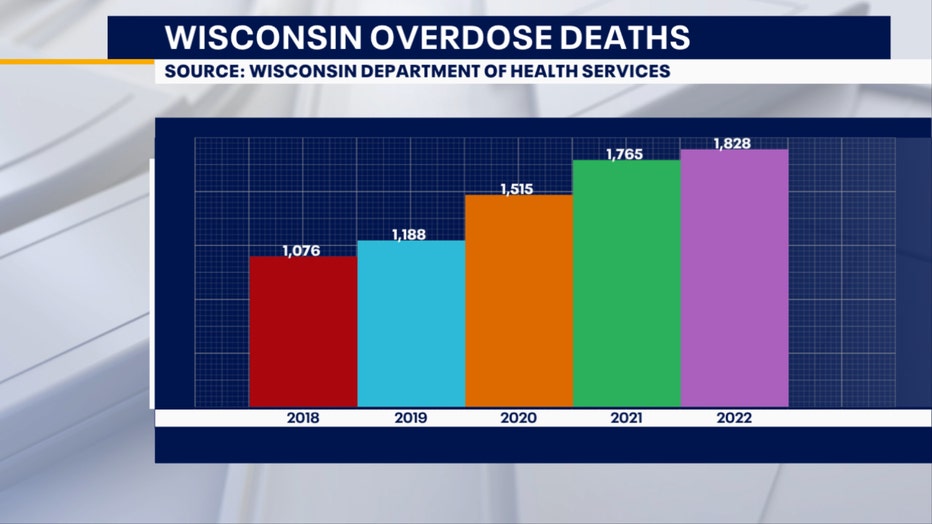Drug overdose deaths, Wisconsin stakeholders discuss solutions
MILWAUKEE - Wisconsin Department of Health Services data shows a steady rise in drug overdose deaths since 2018. First responders say it's a crisis, but what can be done to stop it?
"People need help. People are dying," said Amanda DeLeon with Community Medical Services, an addiction treatment provider. "Folks think that it's just an inner city problem. It is not an inner city problem."
DeLeon joined police and fire chiefs – as well as U.S. Sen. Tammy Baldwin – for a panel discussion on Friday, March 15.
SIGN UP TODAY: Get daily headlines, breaking news emails from FOX6 News
"Starting at a very young age, people need to understand that one pill can kill," Baldwin said.
"We’re not going to enforce our way out of this," said Waukesha Police Chief Daniel Thompson. "This is a social endeavor, which means it's going to take every stakeholder from local, state, federal, to work together to solve this."

Wisconsin DHS drug overdose death data
Thompson said they need to get more NARCAN into the community. Baldwin called for more resources for communities, and the need to get more counselors and social workers to help.
FOX6 News asked how much fentanyl police have taken off the streets. Answering questions from Baldwin, Milwaukee Police Chief Jeffrey Norman confirmed one kilogram could kill 500,000 people – and his department has taken 200 kilograms off the street.
Even as deadly drugs are seized, addictions continue to devour lives. People across Wisconsin, and the nation, continue to die from overdoses.
FREE DOWNLOAD: Get breaking news alerts in the FOX6 News app for iOS or Android.
"We're just getting our hands on what we can and allowing it to prosper somewhere else," Kenosha Police Chief Patrick Patton said. "We're kind of chasing our tail."
FOX6 News asked Republican Eric Hovde, who is challenging Baldwin for her Senate seat, what he would do on the issue. A campaign advisor said the country has to focus on securing the border to stop drugs from coming into the country.
If you or someone you know is struggling with addiction, the U.S. Department of Health & Human Services Substance Abuse and Mental Health Services Administration has a database of treatment centers, information about treatment options and resources about understanding addiction available online. Resources can also be found through local city and county health departments.

